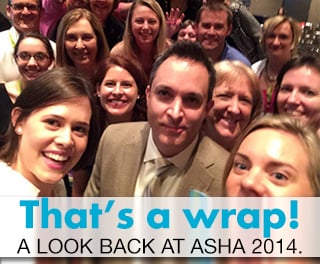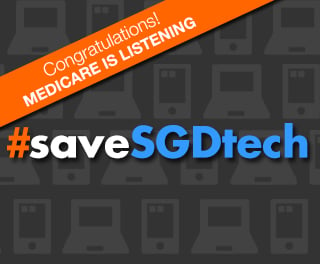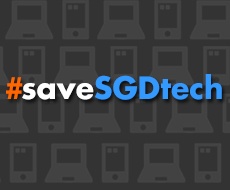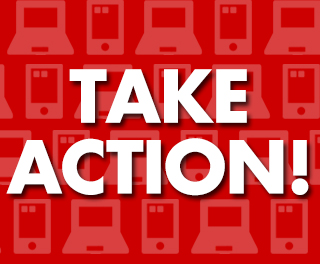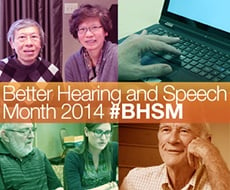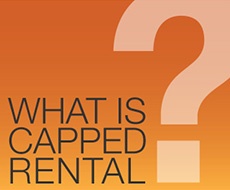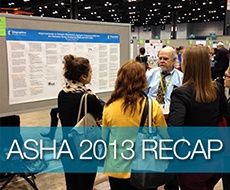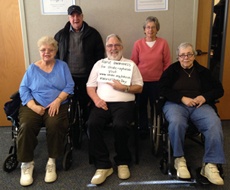It seems like just yesterday I was preparing 2013’s year-in-review blog post and planning for 2014. What a year it’s been! As it turns out, we saw a lot of changes to our industry in the past year – from speech-generating device coverage reminders to capped rental to the expansion of the online therapy world. As we close the year, we look forward to building new relationships, expanding our offerings, and adding additional resources to help clinicians, individuals, and their caregivers.
Our #saveSGDtech advocacy worked! Earlier in the month we received news that The Centers for Medicare and Medicaid Services (CMS) is rescinding the policies from the February Durable Medical Equipment (DME) contractors' "coverage reminder" that required speech-generating devices (SGDs) to undergo changes and reclassification. CMS also announced it is opening up the National Coverage Determination (NCD) for a 30-day comment period ending December 6, 2014. This decision comes after months of conversations with CMS and the other manufactures of SGDs about the features and functionality that SGD users need to communicate effectively in their daily lives.
The speech community is buzzing with information about changes to Medicare’s coverage for speech-generating devices (SGDs). Headlines indicate that Medicare wants to limit coverage for individuals with ALS, also known as amyotrophic lateral sclerosis, while other articles point to limits on functionality of SGDs. What the headlines miss are the stories of thousands of people with aphasia who rely on SGDs and their advanced technology to communicate.
Last week, former New Orleans Saints football player, Steve Gleason penned an op-ed inThe Washington Post about his journey with ALS. Gleason, who was diagnosed with Lou Gehrig’s disease in 2011, shares how he relies on a speech-generating device and other forms of technology to help him communicate, eat, breath, and interact with his family.
Did you know that more than two million people have aphasia in the United States? Even though a large number have the disorder, many people don’t even know about it. This June we’re hoping to change that with our Faces of Aphasia campaign -- which kicks off today.
It’s finally here! May is Better Hearing and Speech Month (BHSM). All 31 days in May are dedicated to raising awareness of communication disorders.
The speech-language community is buzzing with talk about a new term, “capped rental.” You may have heard from a colleague or peer that capped rental is going to impact Alternative and Augmentative Communication (AAC) devices. While this is true, we are here to help clarify what this change means for you and your clients.
This year at the national ASHA Convention, Lingraphica had the largest showing of new products and clinical presentations and poster sessions we have ever had. In addition to sharing our new solutions, we had many quality conversations with speech-language pathologists (SLPs). We saw some familiar faces and met some new ones, and we are thankful we did! The ASHA Convention continues to inspire us to create great products and solutions to transform the lives of people with aphasia. Below, I captured some of the highlights of the convention.
Today is World Stroke Day! On this day, organizations and individuals from around the world are partnering together to raise awareness of stroke. Because an estimated 25 to 40 percent of stroke survivors have aphasia, it's important to educate the public about both stroke and post-stroke conditions like aphasia.



